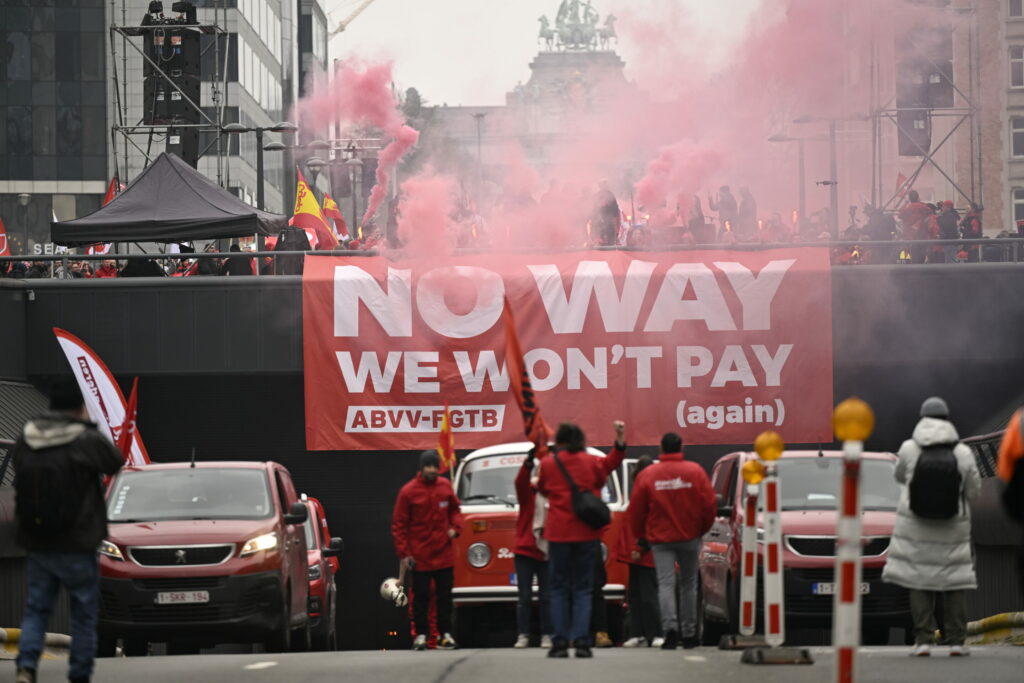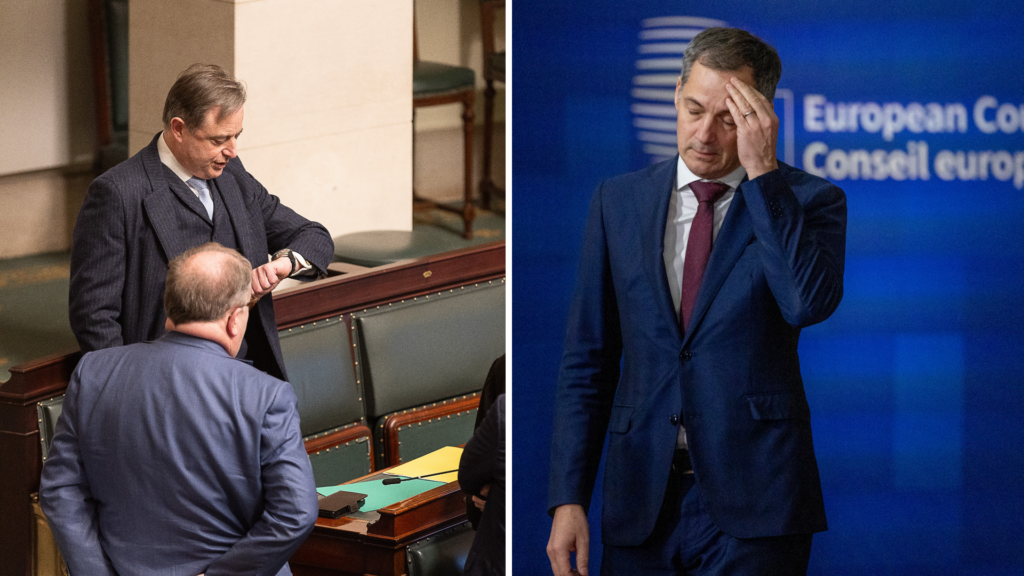204 days have passed since the federal elections and Belgium still doesn't have a government. In any other country alarm bells would be ringing but in Belgium, a protracted period of negotiations is par for the course.
But whilst the lengthy lag time between elections to government is nothing out of the ordinary, the months of deliberation, reframing the deal, reminding partners of their "responsibility", and trying to keep the peace between parties, do come at a cost. Though the caretaker government overseen by Alexander De Croo is ensuring that public services are managed and that life in Belgium goes on, Belgium's finances are straying further from the regulatory guidelines stipulated by the EU.
To prevent economic disaster (such as the sovereign debt crisis in Greece in 2008/9), the European Commission requires Member States to keep budget deficits at less than 3% of annual GDP. Belgium is now well outside this "safe" limit, with a deficit of 4.5% GDP in 2024. This makes it one of seven countries that faces spending limits imposed by the Commission, measures that many argue amount to austerity.
But in order to stabilise Belgium's budget, a Federal Government must first agree on an economic programme of reforms that would achieve this. With a new year about to start and still no agreement, Belgium instead must switch to a system of "provisional twelfths", which divides the total expenditure in 2024 by 12 to provide a monthly budget for the caretaker government in 2025.
So whilst Belgium should be able to avoid the collapse of critical infrastructure, the already oversized deficit will keep ballooning.
The cost of inaction
The lack of a functioning government to steer the country towards financial safety comes at a cost. But exactly how much this is depends on what factors are included in the calculation.
In a recent televised debate, the federal formator Bart De Wever (N-VA) attempted to put a figure on the price of Belgium not having a Federal Government. Exasperated with the interminable argument between the Arizona partners – most notably Conner Rousseau of the Flemish socialists Vooruit and Georges-Louis Bouchez of francophone liberals MR – De Wever said that every second without budget reforms adds €508 to Belgium's public debt.
At the end of November 2024, this debt had swelled to over €524 trillion. But without a new economic programme, this is currently projected to reach €840 billion by 2029 – equivalent to 119% of GDP. This increase, broken down to the cost per second, De Wever put at €508.
However, staggering as this may be, a calculation carried out by La Libre put the actual cost at €1,170 every second – more than double De Wever's figure.

A demonstration against the European Union's plans to reintroduce austerity, in Brussels, Tuesday 12 March 2024. Credit: Belga / Laurie Dieffembacq
Whilst it is unlikely that Belgium will still be without a Federal Government and economic reforms for five more years, there is no question that the financial repercussions of not having a budget are immense.
Earlier this month, NGOs in Brussels sounded the alarm about a "social disaster" that will be created by the lack of political agreement. Schools and other public sectors are braced for budgetary constraints that will come inevitably, though just when is not yet clear.
Then there are the opportunity costs of not having a government. The Brussels Chamber of Commerce has highlighted the impact of not having an executive. It stresses that the lack of clarity serves as a disincentive for investors, potentially costing the economy hundreds of millions. This is even more problematic given the immediate challenges that Belgium and the EU face.
Related News
- Belgian Government: Business sector calls for 'someone at the wheel'
- Belgium's debt grew to 105.2% of GDP last year, with 'significant increase' in interest owed
- Back in business? Brussels economy will return to pre-pandemic levels from 2026
But whilst the prognosis is pessimistic, the Governor of the National Bank of Belgium argued last week that "There is a broad consensus on what needs to be done" and that it is worthwhile spending a bit more time ironing out the terms of a new federal programme, even though the debt keeps growing in the meantime.
"The quality of the coalition agreement is more important than the timing," the Governor said with assurance. Some Arizona partners have fixed on 9 January (the first plenary session of the parliament in the new year) to have a new government. De Wever said this weekend that he expects an agreement by the end of January. Is this wishful thinking or will Belgium finally get to grips with its creaking finances?

